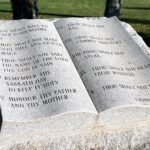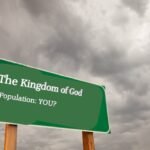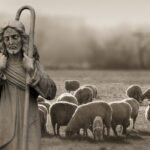By: Mike Wallace
Acts 20:7 says, “And upon the first day of the week, when the disciples came together to break bread…” Does this verse indicate the Sabbath had been changed to Sunday and Paul regularly kept Sunday as a day of worship? Answer, no.
Acts 20:6 Paul waited until after the Days of Unleavened Bread to sale to Troas. Paul, as was his practice (See Acts 17:2-3 Three weeks of Sabbath keeping in Thessalonica ; Acts 18;4, 11 Eighteen months of Sabbath keeping in Corinth; Acts 16:13; 13;44, 42, 14 Sabbath keeping with both Greeks and Jews) he was respecting the Holy Days of God of which the Sabbath is one (Lev. 23:1-3).
Acts 20:7 is the heart of our question. “And upon the first day of the week, when the disciples came together to break bread, Paul preached unto them, ready to depart on the morrow; and continued his speech until midnight.” 1) Was the “first day of the week” reckoned using Roman or Jewish time? Jewish time is to have a day from “sunset to sunset” as shown in Genesis 1:5,8,13,19,23,31; Gen. 2:1-3. Jewish reckoning of time in Acts 20:7 would mean sunset to sunset with the breaking of bread (eating of a meal) to start after sundown Saturday night and Paul preaching until early Sunday morning. 2) Roman reckoning would have the meeting starting Sunday and Paul would have preached until Monday morning with a meal “after” midnight or early Monday morning. The Roman reckoning scenario in itself defeats the thought of a “Sunday” service because under the Roman reckoning the meal (“Breaking of bread”) was on Monday after mid-night Sunday See verses 7, 11. 3) “Break bread in this instance is a meal, not a church service (See Bacchiocchi pages 101-111). 4) The Saturday after Sabbath meeting was an extraordinary meeting to see Paul off on his next mission (Acts 20:7, 11) as he was to leave on Sunday morning to travel to Assos. This is not unlike today’s traveling evangelists coming into town and preaching on any day of the week. Their preaching on “any day of the week” does NOT change the Sabbath day. 5) Paul, a Hebrew of the Hebrews (Phil. 3:5) would have used the Hebrew reckoning of time and not the Roman as we have already seen He kept the Sabbath and the Holy Days.
In God’s word (The Bible) which calendar would God use? Roman or the calendar He made as His creation of the world?
The significance of this “special” get together was to see Paul off on his next mission. It is important to note at this meeting Paul prayed for and received a miracle with the “resurrection” of young Eutychus after he fell asleep and fell out of the window. The evening provides an extraordinary insight into Paul and his travels, the power God used through him, the respect of the brethren for him by giving him a “going away meal” and it provides an excellent timeline of Paul’s journeys. What Acts 20:7 does not do is show the Sabbath had been changed from Sabbath to Sunday. In fact, the verse emphasizes the Sabbath by pointing out the meal was after the Sabbath.
Bacchiocchi, Samuele, From Sabbath to Sunday, The Pontifical Gregorian University Press, Rome, 1977. For specifics on Acts 20:7 see pages 101-111























